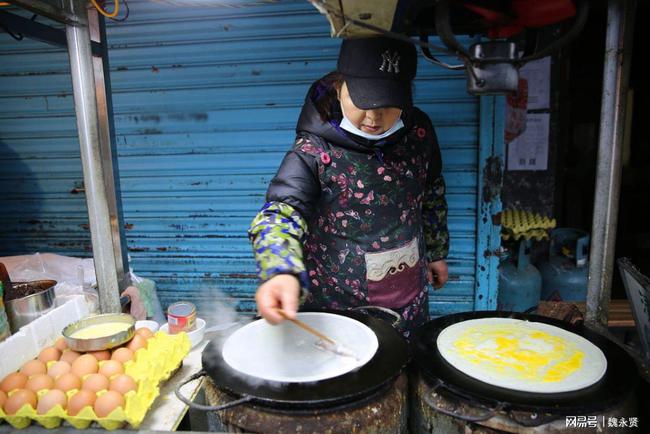You are a teenager or a young adult who worked hard throughout your school term, and you now have $10,000 in your pocket. You know that financial planning starts young and you do not want to wait till it is too late. You also know that just working hard in your job will never give you the financial freedom you wanted. Or maybe you are someone older but finally settled all your outstanding debts, having finally got the opportunity to start afresh. One question remained: How should I use my $10,000? Where should I invest them in?
If you only have $10,000, chances are you are physically young, or at least financially young (as mentioned above, just finished paying your debts and taking this chance to restart). Don’t get me wrong, I am not looking down on anyone. I had near $0 at 29 after suffering from the biggest failure of my life. We all start somewhere. While we all know that time waits for no man, patience is actually the most important virtue you need to have right now. You being young means that you have the time to explore and to learn. Once you are done, the money would come in more easily later.
I had my university loan fully cleared by the time I graduated from university, because I worked very hard during my school term. I got a job with an average salary, and within a few months got my first $10,000 in savings. I decided to jump into the stock market, tried to earn money with money, and got my fingers burnt and lost all $10,000 with it. I never gave up and kept trying. From stock markets to crypto currencies to forex, I lost a total of 50,000 USD in total. 50,000 USD later, I learnt that I lacked discipline and patience.
Back to the topic, if I have $10,000 now, what would I do? What you want is to use your money to expand your income source, either through business or investment / trading. However jumping into it without any prior knowledge will be costly. Just because you spent 100 hours reading on Investopedia does not make you an expert in trading. Your $10,000 capital should be used to help you gain the necessary experience, with of course the end result ideally being to retain the original $10,000 plus profits. But the world is not kind to the young and inexperienced.
What I will do is to divide by money into 4 parts:
1. Cash savings (25%)
2. Trading / investment funds (25%)
3. Business funds (25%)
4. YOLO funds (25%)
Cash Savings
Traditionally, cash savings means putting money in the bank, be it flexible or fixed deposits. Interest rates these days have been awfully low. Yet one must have a portion of cash, or cash equivalent set aside which can be taken out any time for any emergency use. Your investments may not be withdrawn any time you like due to potential paper losses. Your business funds cannot be withdrawn anytime without impacting its operations. However, just because we leave a portion in cash does not mean we have to see it collect dust and erode away in inflation.
Consider putting some (note: not all) of your cash into crypto savings. Among the crypto savings, stablecoin savings (eg USDT, USDC) is the most liquid and lowest risk of all crypto. 1 USDT or 1 USDC = 1 USD, hence you can convert them back to real world money easily. Crypto savings also has a much higher interest rate than the usual banks. For example, China banks pay 3% annually, Singapore banks pay 0.25% annually etc. Yet crypto savings, though fluctuating on a daily basis, have often yielded average returns far above what the traditional banks can give. As at this point in writing, Celsius USDT savings rate is 10.02% per year, with interests paid out and rolled weekly.
With that kind of rate, actually it is already better than many of the stock dividends and REIT yields. Even rental yields stands at about 4% per year. That being said, I do not recommend putting everything into USDT savings because firstly, crypto is unregulated (as it should be) and there certainly exists some risks. I would consider putting 50% of my cash portion into crypto savings. The remaining 50% can either put in fixed deposits or just normal standard bank savings. Yes the interests in the traditional banks would not outrun inflation, but your USDT savings would make up for that and balance everything out.
The most important aspect of this cash savings portion is to guard you against any emergency. Hence, liquidity and preservation of value takes utmost priority, not earning money.
Trading / Investment Funds
To trade (buy sell within the day, week, or month) or to invest (buy and hold long term) is something which you can decide for yourself. Some prefers to trade, some prefers to invest. But, start very small first. Do not go all in. Be it shares, forex or crypto, each of these financial instruments allows you to buy in very small amounts. You can buy 1 share of American Airlines (not that I would choose this stock anyway), or 0.001 of a BItcoin, or 0.01 lot of a forex order. These numbers seem too small for you to earn any decent money in a short time, yet it also prevents you from losing significant money in the same period of time. Unless you are someone with a high intellect, or someone who has been in this line for years, do not for a moment think that you are able to win against the big players. All these markets have one thing in common – they are a zero sum game. What you win is what others lost, and vice versa. In each of these markets there are institutional investors with billions at their disposal, they have all the statistics of the market at their fingertips and they hire the best graduates to trade for them, on top of their expensive software and algorithm. Market manipulation is something you should expect.
With the $10,000 you have and the $2500 you have allocated into this segment, your main purpose is not to earn money, although of course we all still strive to do that. Your purpose is to learn what happens during trading or your investments, and to ensure you always have sufficient money to test out new strategies. That is why I recommend trading in small lots. If you go all in, and get stuck, you will have no more money to try new things when the opportunity arises. Earning money from a few trades is no big deal. Any donkey could do that. Earning money consistently over the months is a noteworthy accomplishment. Trade small over a year. During this year you would have seen the different ups and downs of the markets, and experience a range of emotions running through you and through which you can learn more about myself. If a hundred dollar loss could invoke such a reaction in me, what would happen if it is a $10,000 loss? Could I still make the same rational decision?
If you find out that trading and investments are not for you, by all means, quit. Some like to play the market, some cannot stomach the fluctuation. There is nothing right or wrong about that. At least you have discovered something for yourself at little cost.
You can trade small lots of forex and commodities with Oanda.
Business Funds
Like trading and investments, business is suitable for some and not suitable for others. Nonetheless, business comes in many forms. There are the dropshipping type, service providing type and the physical retail type to name a few. Are you able to sell things? Do you have a business idea you would like to try out? Try it out and experiment using that little money you have, Any business idea that requires a bigger capital outlay such as opening a physical retail shop is not recommended for now, simply because you do not have the money. I started my dropshipping business with $0 and as I progressed, I slowly injected more money into it. But I understand that anything out of the dropshipping model probably requires money to start.
Business is essentially doing what others cannot do or doing what others do not want to do, and in the process giving the customers what they want. I have seen small cleaning companies armed with a vacuum cleaner and some cleaning equipment, running around houses to do weekly maintenance cleaning for the owners. I have also seen some setting up a mini food stall at the market.
China once had a news report where it was revealed that a roadside stall selling wraps could earn 10,000 Chinese RMB (1565 USD) per month. Although converted to USD may not seem much, but in China, I would suggest that you take their 10,000 RMB at their value. Because their 10,000 RMB can buy more daily resources like groceries than what you can buy with 10,000 USD in the US. Not that I am telling you to go set up a roadside stall, but do not limit yourself to social status or anything like that when you are thinking of a business. Think of what you can do, what you are good at, what you would like to and what are the resources you have at your disposal.
What are your resources? Time, energy, family help (if applicable), your $2500 capital, your education, your knowledge, your experience etc are all your resources. Look deeply into each one of them and ask yourself what do you have that you can capitalise on? What do you have or what are you willing to do (legally and morally of course) that can earn you money? Setting up a business is not only about pumping money into it, but about using your available resources to deliver a certain service or product to the customer. Just that to achieve that, sometimes in the process we need to put in some money to get things done, such as buying of equipment. If you do not know how to use your resources properly, putting in money alone will result in an undeniable failure.
Setting up and running a business is not easy. If anything, it will take more effort and time compared to your day job. Your business will not run automatically because you throw in some money. Throwing in the money only gives you the opportunity to start. It is your business, nobody else would and should care about your business more than you. In fact your competitors hope you fail and your friends would rather not buy anything from you. You will have to work harder than anyone. But in business, you truly learn that every decision cost money. Everything is weighed on the scale of profit and cost. Your hunger, determination, intellect, experience and compassion (if you manage to make it big) is put to the test all the time.
Does this route means it is much more difficult than the trading / investment path? No. To be fair, in business, many things are within your control. But the stock market is never in your control. In my experience, in business, once a profit is taken and put into your pocket it is yours. However in trading it is not. Today’s profit may need to be used to tank tomorrow’s paper loss.
For information, this is the route I chose. I have multiple streams of side income, but business was the only one that raked me consistent money throughout the years. I did not have experience or knowledge in doing business, and hit my head many times. But I persisted, and slowly carved out a path for myself. I am not earning big money every month, but I earn decent. I love trading and will continue to trade, just that the results of my trading is not something I can take it out and be proud of.
YOLO Funds
This set of funds is not meant for you to squander away. But it is meant for you to spend on doing something which you would like to do, but have no opportunity to do it yet, due to a variety of reasons. Similar to the above, if successful, the end result should still see you earning money from your little adventure. What is life if you do not keep exploring and trying new things, especially if it is something (morally and legally) that you want?
To quote an example. Perhaps live streaming is something which you would like to do, but unable to do it full time simply because our society do not consider it a proper job. In fact, there are so many live streamers around that you are not confident that you will even make it. This is where the YOLO funds come in. Go, give it a try. Spend some (not all) on basic equipment like a microphone and some lighting. Give yourself a basic set up and go try it.
Or you really love singing, and you dream of singing at gigs, at the bars, at wherever. But maybe your singing is horrible. Go use the money pay for a course and study. Pursue what you want and explore this route. Along the way you will meet like-minded people and have your own network. If you can find a path towards what you want, even as a part time job, then the money spent will be worth it.
Conclusion
The above describes how I would allocate my funds if I am to start all over again, with the wisdom I have today. Of course, to those who know yourself well enough, you may already have cut off some of the suggestions I made, such as setting aside money for trading or for business, because you know you simply have no interest in that path. In that case, just balance your funds allocation accordingly.
With $10,000, the main objective is to use it to build a road towards your future success. Success is many times not straightforward, but many times a series of frustratingly slow and tedious process in which we have to inch forward bit by bit. Chances are you are young and still have a long way to go. Be patient. In my desperation to make it young, I set myself 50,000 USD back and had to take even more time to recover the losses. And as you grow in experience and age, you will be able to handle increasingly larger sums of money better.
Showing 1 - 3 out of 3
Page 1 out of 1
| - | Shop Products | Price | |
|---|---|---|---|
|
|
$99,999.00
|
||
|
|
$1.00
|
||
|
|
Price range: $69.00 through $99.00
|




